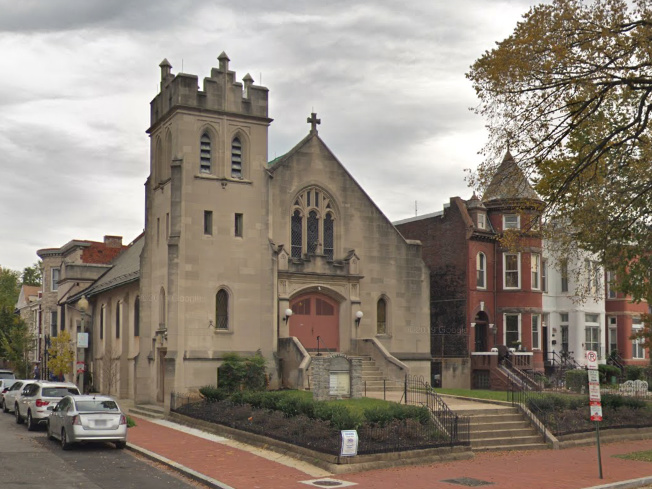Buried on page 1,729 of the trillion-dollar infrastructure bill approved by the US Senate on Tuesday in a bipartisan vote is a project titled “Energy efficiency materials pilot program”.
It would fund $US50 million in grants to non-profits, including religious congregations, so they can buy new energy efficient heating and cooling systems for their buildings. The program, to be administered by the Department of Energy, would provide grants of up to $US200,000 each for non-profits that want to purchase new HVAC units and generators or fund replacements of windows and doors to make them more energy efficient.

The Mount Lebanon Baptist Church in Washington, DC, recently received helped from the Community Purchasing Alliance – a Washington, DC-based cooperative that helps struggling churches and non-profits buy basic services, to replace its heating system. PICTURE: Google Maps
The relatively small item in the substantial infrastructure deal has been in the works for years. It was spearheaded almost a decade ago by the Orthodox Union Advocacy Center, a Jewish public policy arm representing one of the largest Orthodox Jewish group in the US, and supported by a coalition including the National Council of Churches, the National Association of Evangelicals and the YMCA of the USA.
“For synagogues, energy and utility costs can be the most expensive line item in their budget, especially if they have a small staff,” said Nathan Diament, executive director of the Orthodox Union Advocacy Center.
This project, he said, would allow congregations to “allocate greater funding to programs and services and less to energy bills, ultimately decreasing their energy footprints.”
Back in 2012, the Orthodox Union worked with Senators Amy Klobuchar and John Hoeven to push for the Nonprofit Energy Efficiency Act, which was reintroduced in Congress twice since then.
Maintaining older sanctuaries has become an ever-increasing burden. Congregations of all faiths are aging and membership is declining, putting a greater financial strain for building upkeep on fewer people.
Given the overall size of the infrastructure bill, the project is tiny. If it awards maximum grants of $US200,000 each, it would only help 250 non-profits.
There are an estimated 350,000 religious congregations in the US.
Still, it’s an important measure, said Galen Carey, vice president of government relations for the National Association of Evangelicals, part of the coalition that pushed for the program.
“Anything we can do to help the energy efficiency in the non-profit sector is good for mitigating climate change and the operating efficiency of non-profits that play such important roles in our society, “ Carey said.
The main features of the $US1 trillion infrastructure measure the Senate passed would mostly pay for roads, bridges, rail and water systems. The bill now goes to the House, where it may face a bumpy path. Some Democrats have suggested the measure falls short of what they seek.
Non-profits have a much harder time accessing energy efficiency subsidies, which typically come in the form of tax credits. Since non-profits don’t pay taxes, the tax credits aren’t useful to them.
At the same time, many religious congregations have deferred maintenance upgrades for years and are paying costly utility bills as a result.
Felipe Witchger, executive director of the Community Purchasing Alliance, a Washington, DC-based cooperative that helps struggling churches and non-profits buy basic services, said 80 per cent of religious congregations desperately need maintenance upgrades on such items as aging heating and air conditioning units, leaky roofs, drafty windows, cracks in the basement and crawl spaces.
“HVAC and building envelope improvements can reduce 20 to 30 per cent in energy usage and cut carbon emissions,” said Witchger.
Recently his cooperative helped Mount Lebanon Baptist Church, a historically Black Washington, DC, congregation, replace a $US30,000 HVAC system for which the congregation took out a 20-year loan.
Funds awarded through the pilot project grants would not pay for labour, only materials, Diament said.
He was “pretty optimistic” the energy efficiency project would survive whatever changes the House makes to the bill. Assuming President Joe Biden signs the measure this fall, Diament said he hoped the Energy Department would be in a position to award the first grants in 2022.






